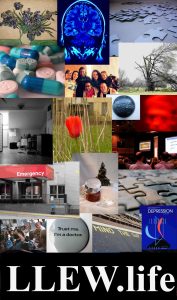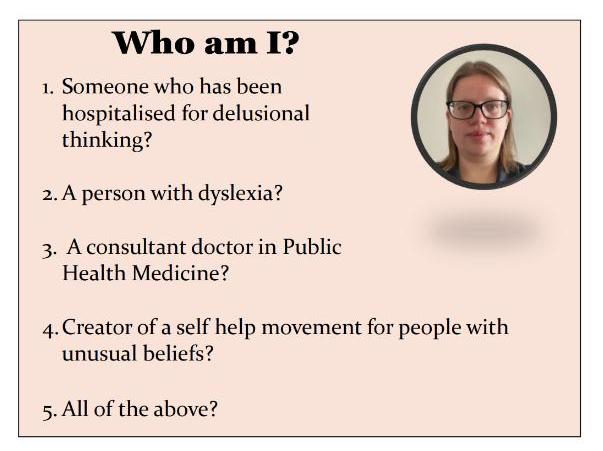This is a piece I wrote after my IPS training. I’d talked to clinicial colleagues at my hospiital work and it had been noticed that the a number of the specific skills covered in IPS were the same as some of those covered in basic clinical training – body language, accurate empathy etc. Was IPS training to become semi-qualified clinical assistants, then?.
I knew the answer was H_ll, No.
So I decided to write about how those specific skills were used in different contexts and different ways by IPS practitioners. This is that document. It’s aimed at our clinical colleagues. so uses their language.
I later adapted it as a Powerpoint presentation (Click Here), also on this site.
What is IPS and how does it differ from other sorts of support?
Intentional Peer Support is a method of mental health peer support, based in large part on an examination on what makes ‘unintentional’ peer support work among consumers in various settings.
WHAT DOES IPS LOOK LIKE ?
Core Tasks as Observed in Organic Support among Consumers
The core ‘tasks’ of Intentional Peer Support are:
Connection – ‘engagement’, on an immediate, constantly monitored, continually worked-on basis
Worldview – an awareness of how the experiences of BOTH people in a relationship made them who they are, and how this suggests most effective means of communication.
Mutuality – A specific awareness of a shared responsibility for the relationship which has developed from the first two tasks, and methods for maintaining the relationship. This relationship is where most of the ‘work’ of IPS is done, and where the Peer Worker goes when confronted with challenging behaviour or has concerns about safety.
Moving towards/Hope – much more than ‘goal setting’, this is all about ‘hope’ in a concrete, identifiable and personal sense, finding it inside a confusing and traumatic set of experiences, and nurturing it.
Specific Skills, Many of which will be Familiar to Clinicians
These tasks are done in a context of some identified principles, and supported by hundreds of specific concepts and skills, which are only covered broadly in the initial 5 day training, which are further developed via continuing ‘Co-reflection’ reflective practice sessions..
There is not necessarily anything unique about each of the components or some of the skills involved, but IPS combines them and utilises their interaction in a way that uniquely uses the characteristics and capabilities of members of the peer workforce.
WHAT ARE THE CONSUMER CHARACTERISTICS AND CAPABILITIES IPS LEVERAGES?
A broad range of common shared experience
It is certainly possible for any worker with enough skill and effort to use empathy and connection, to ‘bridge the gap’, but generally when you can, you ‘build a bridge at the narrowest point of the river’.
The typically broader range of shared experiences (the peer interface – my term not an IPS one) in a peer relationship makes this empathy and connection easier to build and quicker to become useful. If the need arises, I could probably eventually demonstrate empathy for someone trying to quit smoking, as a non-smoker, but someone fighting the same fight could probably do it in a sentence.
Not having a role in deciding on or enforcing some of the restrictions on choice deemed to be necessary to promote safety
The dual roles of healer and protector of public safetyforced upon mental health clinicians in the particular legislative framework under which our services operate is a challenging one, unique among health specialities, and has elements that few clinicians actually sought when they made their career choice.
A differential in power can take a toll on a relationship; two carefree clinical colleagues who for the first time find themselves in the relationship of manager and subordinate may find their relationship straining or changing.
It is certainly possible for an experienced clinician to engage even in the context of this power imbalance, but it is by continual and deliberate effort and subject to potential setbacks when clinical indicators require action that is not optimal for relationship building.
Not having a responsibility for assessment or diagnosis
Our lack of qualification in assessment and diagnosis, and the fact that we work in an environment just teeming with people who have those skills means we can, in good conscience, leave assessment to them and suspend judgement and analysis and explore without therapeutic intent a person’s individual world to a much greater extent than professional roles and legal duties allow clinicians to do easily.
If a consumer tells me about a particular event or experience, I as a peer worker do not need to determine whether is a ‘symptom’ or fits into a diagnostic constellation. I get to just listen to the person talking, and hear what is important to them.
For instance, if a person talks of hearing a voice I do not, I as a peer worker cannot and should not try to work out what diagnosis this reflects, how ‘decompensated’ they may be, or even what ‘risks’ this entails for ‘deterioration’. All these things are tended to by colleagues with the appropriate skills.
I can just, in my professional practice at least, treat these reports as part of the new relationship, as things important enough to the ‘life story’ the other person is giving me that they bothered to mention them.
The IPS take on ‘Trauma Informed Care’ is also relevant here. IPS does not ask ‘What’s wrong with this person ?’ but instead they ask ‘What happened to this Person ?’. This is not asked out of any psychoanalytical intent, but in order to know what will help communication and ‘Connection’ and what will not, and how to nurture a particular relationship.
This experience of being heard without judgement is rare and is one of things consumers value about the camaraderie on the ward in the organic consumer support.
This sometimes leads to connection and understanding that can be complementary to those developed by other disciplines.
IS IPS USEFUL IN PEER WORK ?
As would be expected for a method developed in large part from life experience of organic or ‘unintentional’ peer support, many of these concepts and skills are very familiar to experienced Peer Workers, even if the language IPS uses to describe them is not.
However, it is very useful to have a common language to talk about Peer Support activities, and to be able to share and sharpen our skills.
IPS also serves as a very useful distillation of one important viewpoint on Peer Support, and does offer newcomers to the field an orientation, and some important tools for practice and for maintaining safety for all involved.

